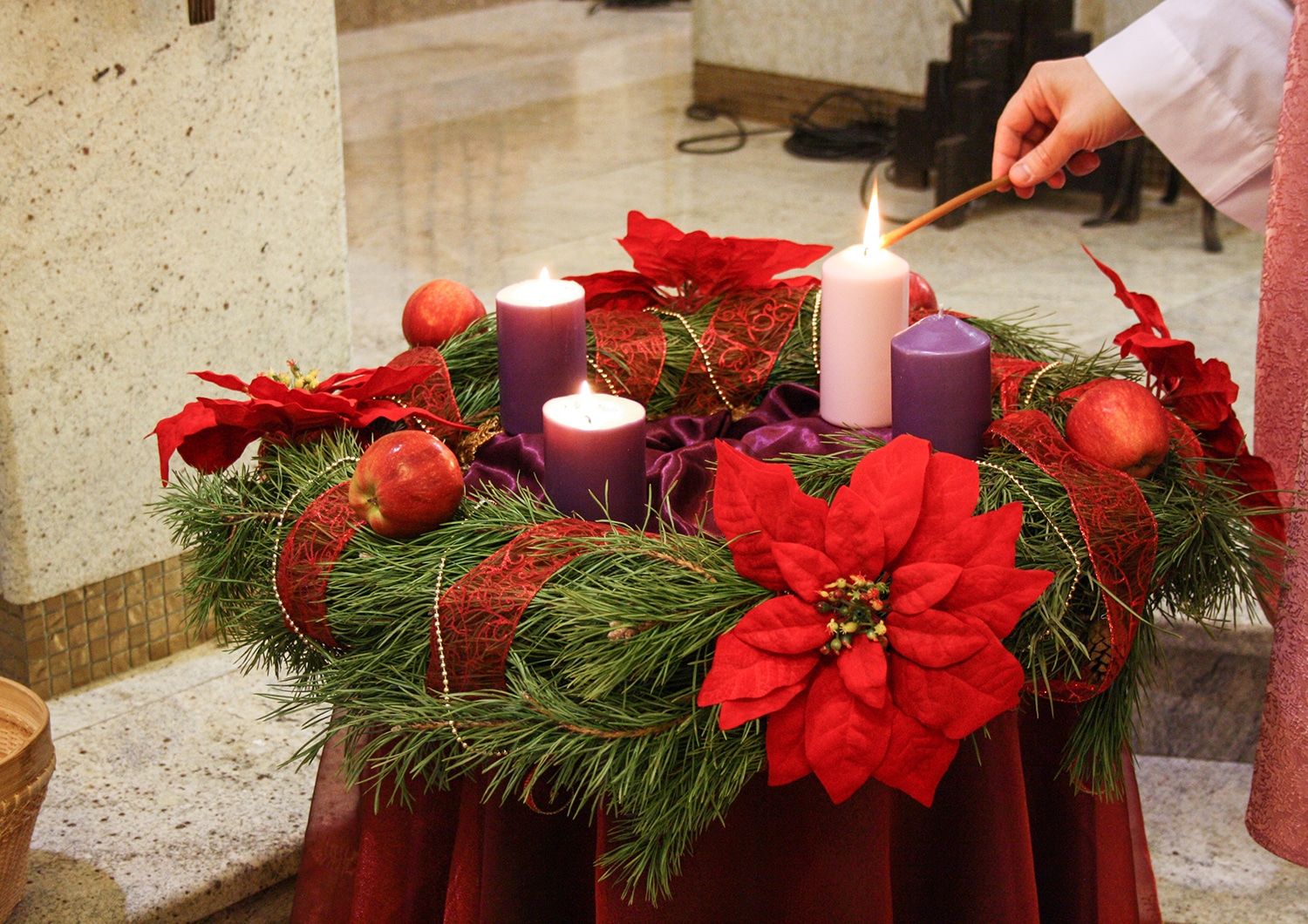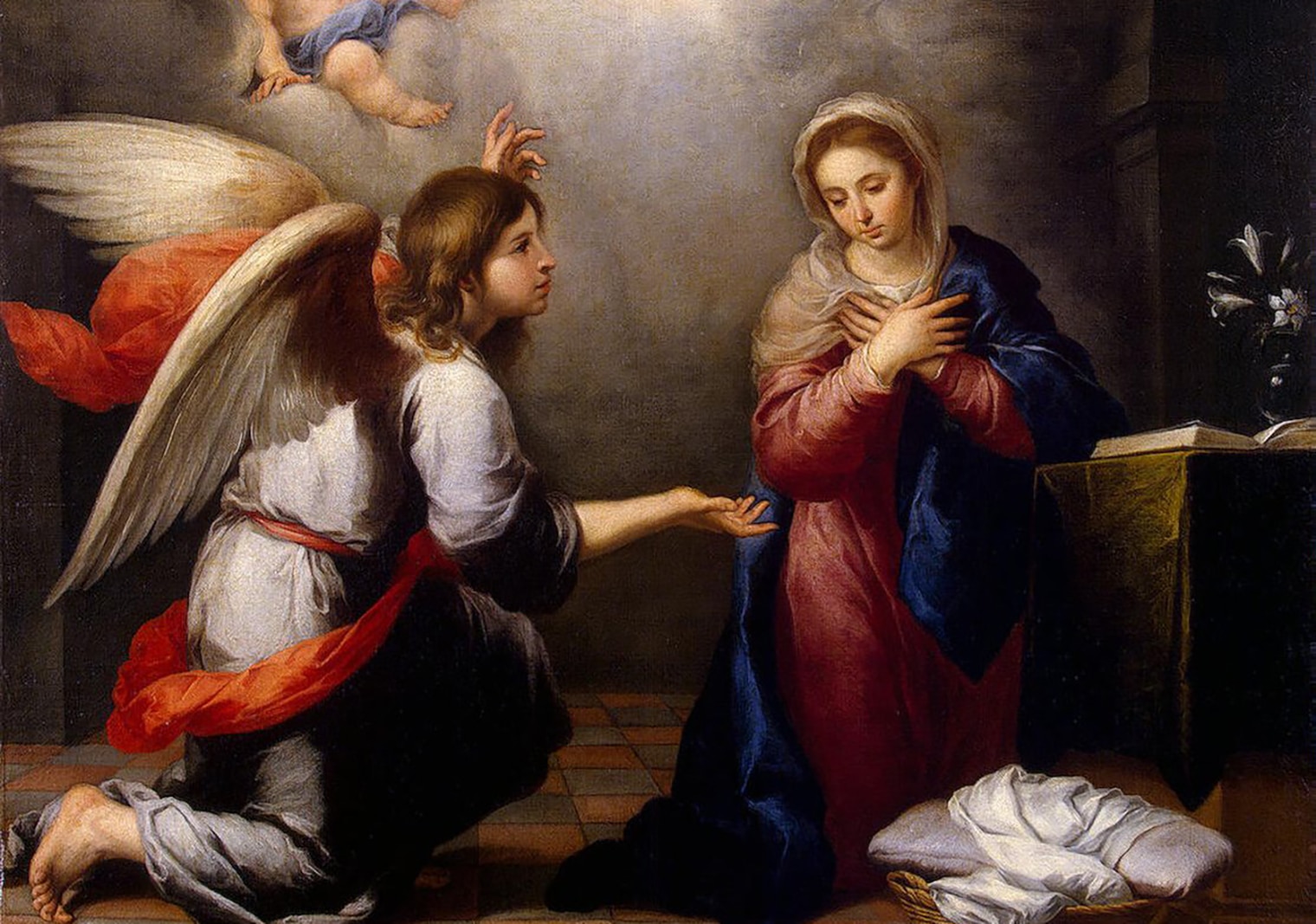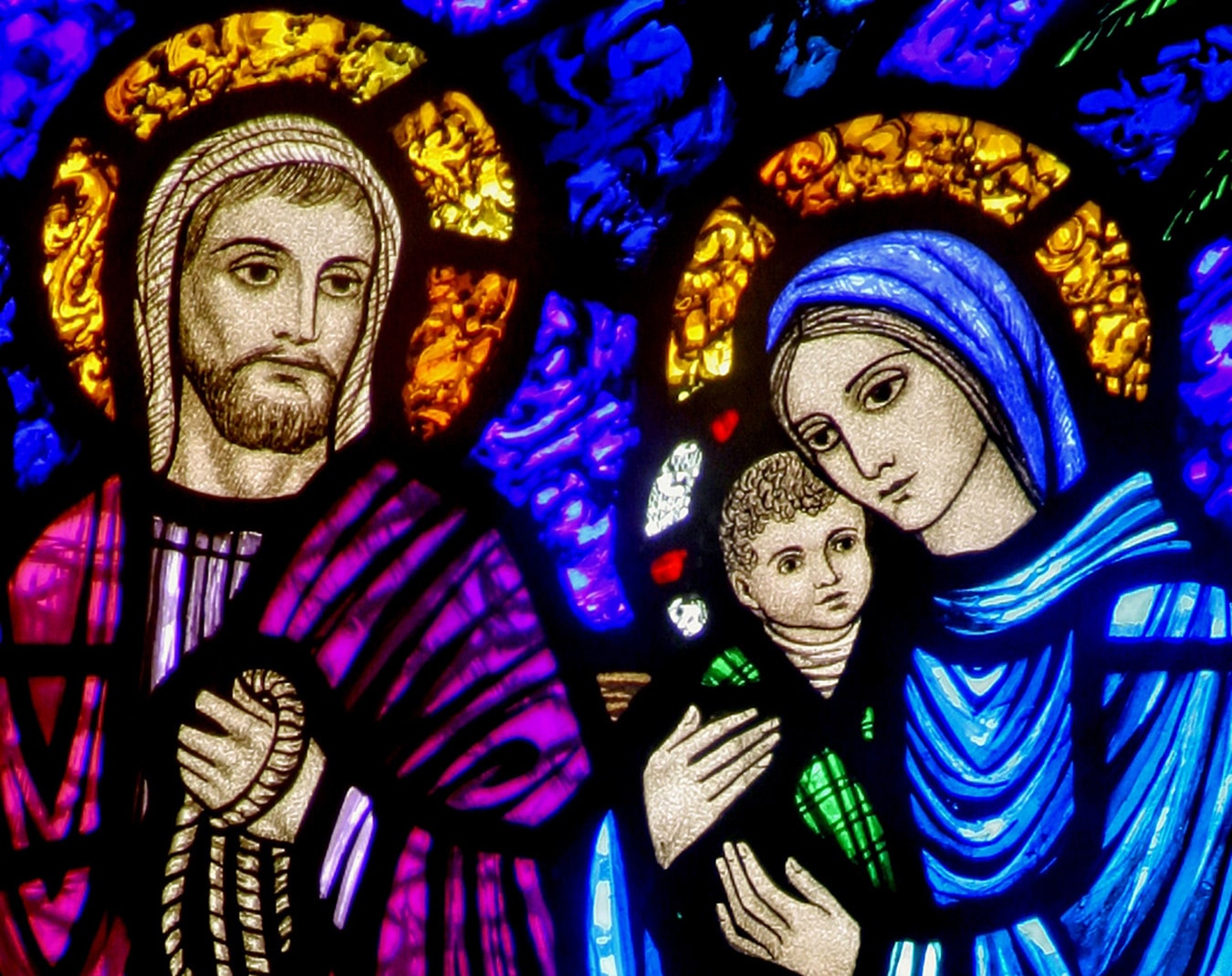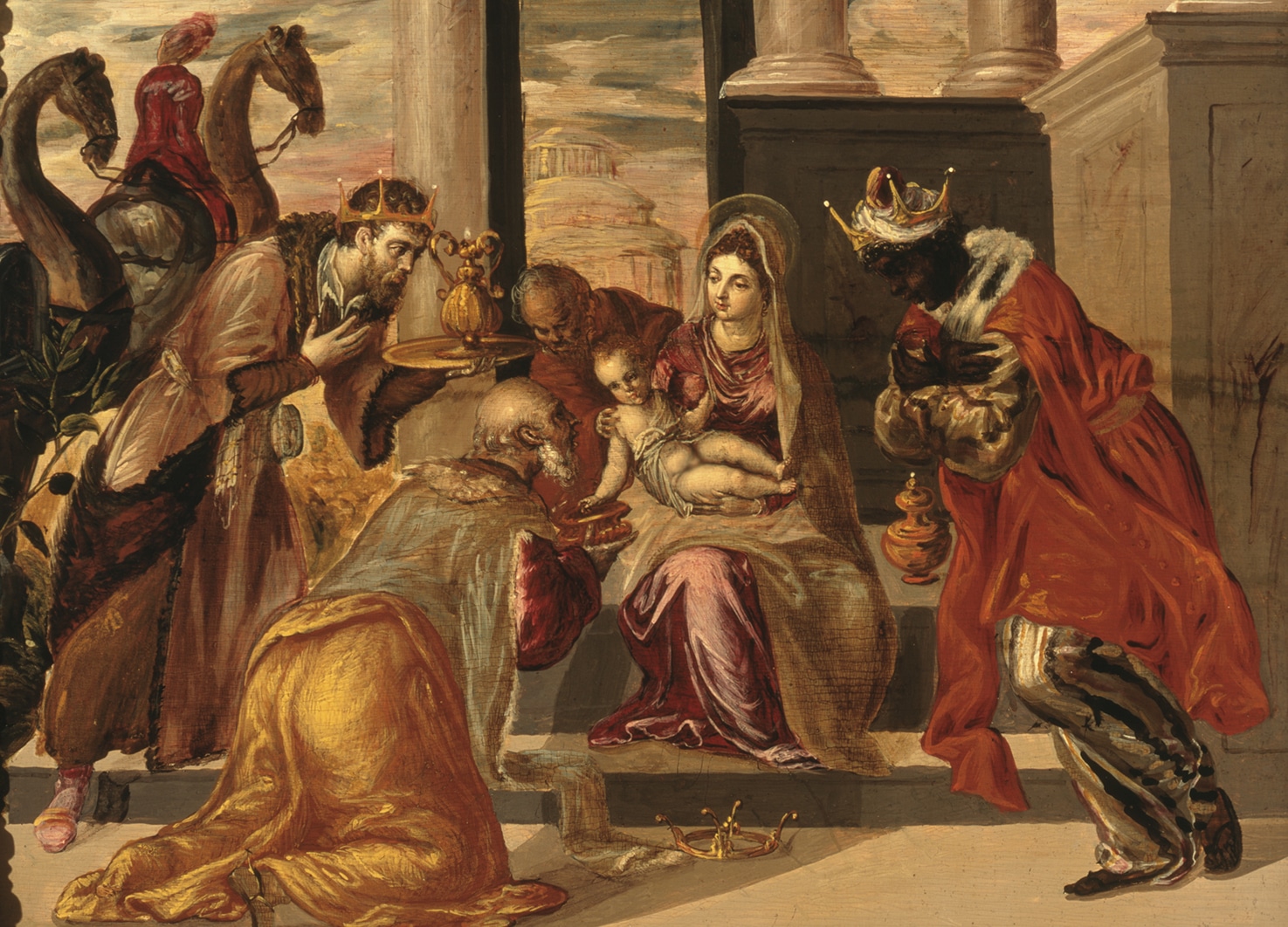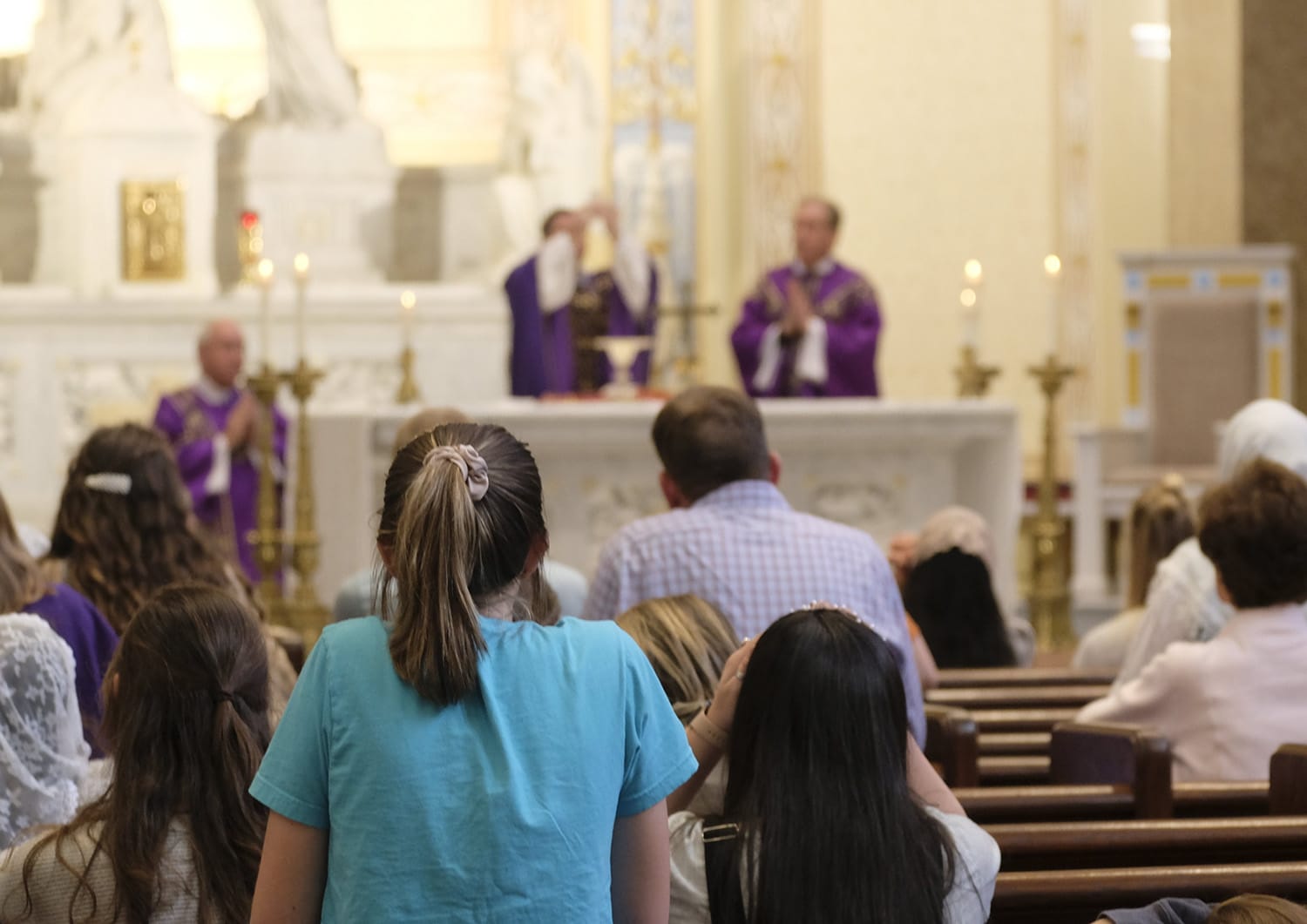As Josef Pieper put it, “We are not the forgers of our own felicity.” That’s how I make sense of Gaudete Sunday’s command to rejoice. It’s the best way I can think about it.
“Rejoice in the Lord always; again I say, rejoice,” says the entrance antiphon of the Mass. It’s where we get the word gaudete from; it’s Latin for rejoice. It’s a quote from Paul’s letter to the Philippians; it’s a command. And that’s what’s so odd about it, that it’s a command. I mean, how on earth can one obey it? Sometimes life isn’t joyful. How can I be joyful when sometimes I’m just not joyful? Am I supposed to fake it? What’s going on here?
This is why that little line from Josef Pieper has stayed stuck so usefully in my head. Because it reminds me that the joy the Church is talking about is not something I create; rather, it’s something I can only receive. I am not the forger of my own felicity. Joy is a gift. It comes not from me but from God. This is what the Lutheran theologian and martyr Dietrich Bonhoeffer meant when he said that Advent is like a prison cell, because it “can only be opened from the outside.” He was in such a cell when he wrote those words, certainly not a place where one can easily fake joy. No, the joy of Gaudete Sunday must come from somewhere else.
Now we see why Gaudete Sunday comes in the middle of Advent, the season that prepares us to receive the Word made flesh. Christ, born of the virgin, is the bringer of joy, the forger of our felicity. Yes, the world is dark — the whole world, my world, your world. But Jesus Christ enters the world, takes our flesh; he will preach and heal and suffer and die and rise from the dead.
Eternal joy is the message
Better than making joy for ourselves, chasing the shallow false joys of the world’s glamor, is the eternal joy of the risen Lord. That’s the message. The Church this Sunday is not offering you the bromides of a shallow life coach or guru; the Church is telling you to lift up your hearts and look for true joy — Christ the Lord. The invitation is not cheap. Gaudete Sunday is not a pep talk. It’s mystical. It’s about a Christmas deeper than the conventional sentimentality of the season.
| December 17 – Third Sunday of Advent |
|---|
|
Is 61:1-2, 10-11 Lk 1:46-48, 49-50, 53-54 1 Thes 5:16-24 Jn 1:6-8, 19-28 |
Which is why John the Baptist’s advice is perfect spiritual advice for the season, that we should look for another, something greater than him. We must look for the joy more lasting than the joys that fade. It’s also why Paul’s advice is perfectly practical advice. “Rejoice always. Pray without ceasing” (1 Thes 5:16-17). These two things must always go together — rejoicing and prayer. These two things strengthen each other in the souls of the lovers of Christ. If we’re to find true joy, we must look for Christ. And we do that by being faithful in prayer — even when we don’t feel particularly joyful, especially then. Because that’s another thing that joy is made of — hope. These are the virtues and fruits and gifts of our faith, and they are the true substance of Advent and Christmas.
And so, if you’re not feeling joyful, that’s okay. Don’t think you’re a bad Catholic or an irredeemable sinner if you don’t feel the way you think you’re supposed to feel. The mystery and gift of Advent and Christmas is not about feelings. It’s about Christ. So, whatever you’re feeling — happy, horrible or just a little sad — this Sunday is still for you. Because Christ is still for you. Because he loves you.
And he’ll help you rejoice in due time, as his sacred heart touches yours.

